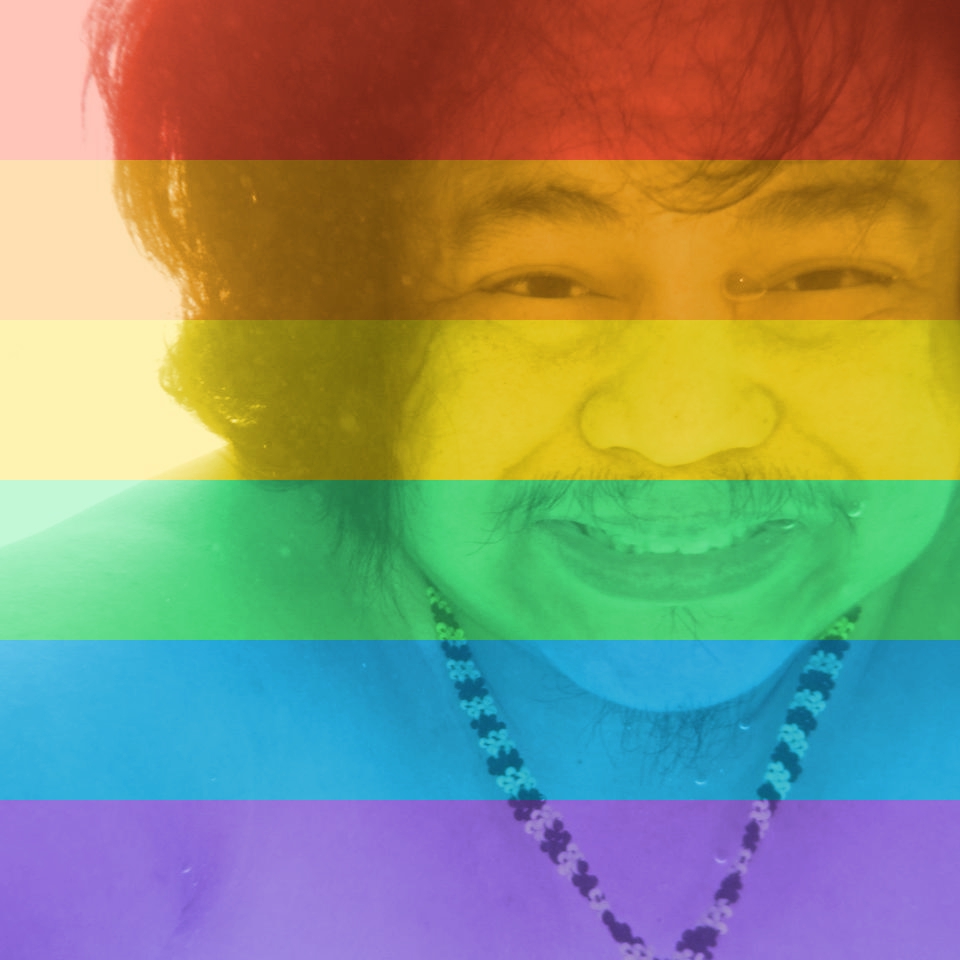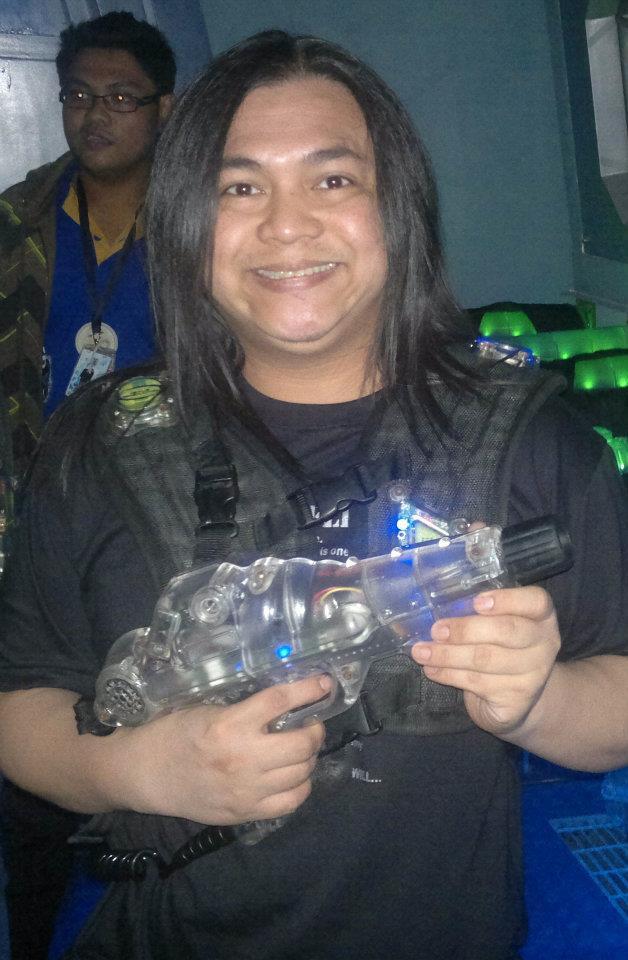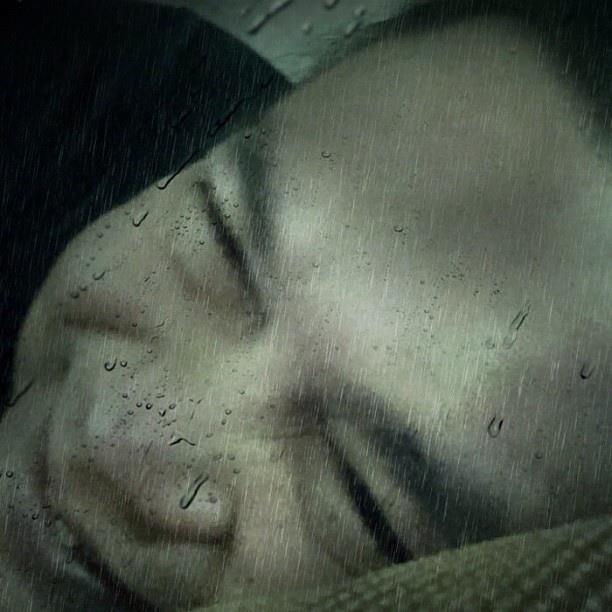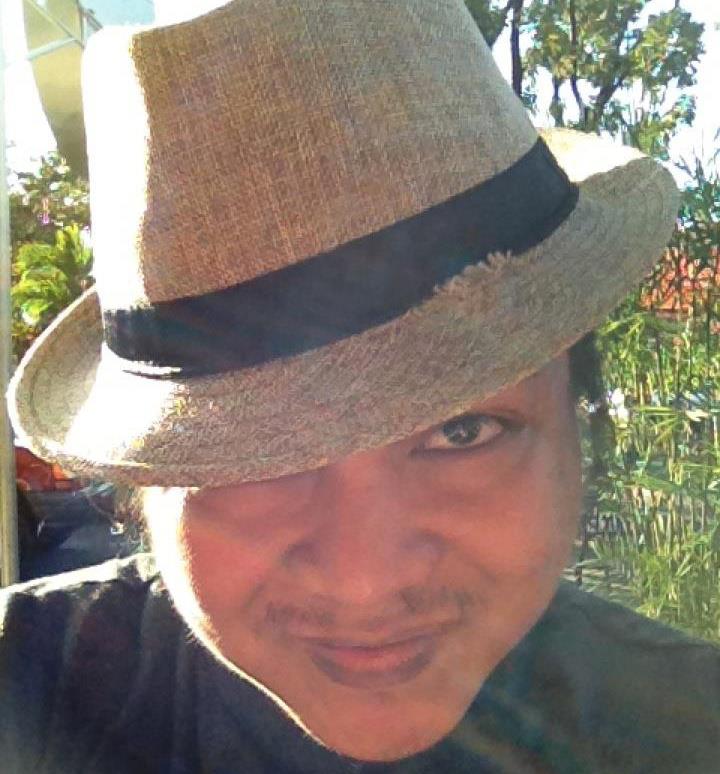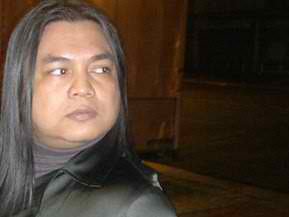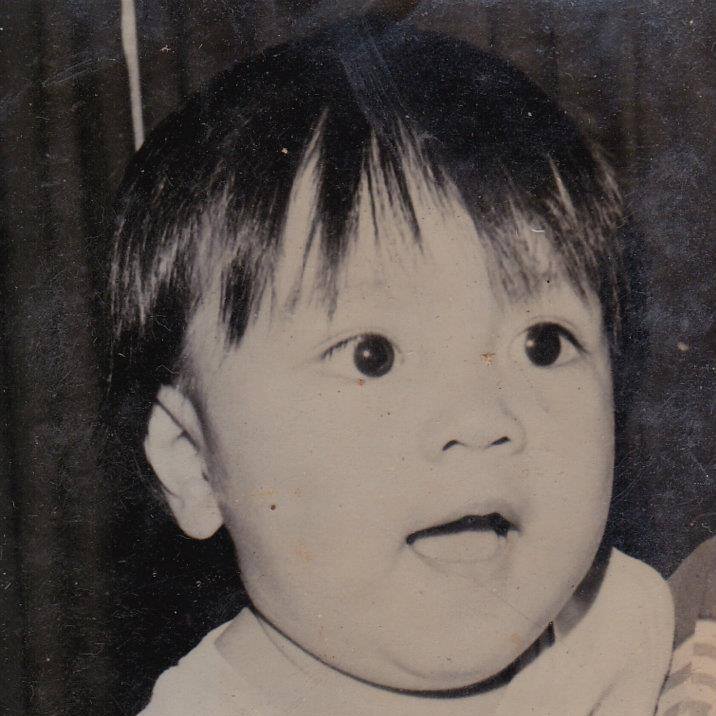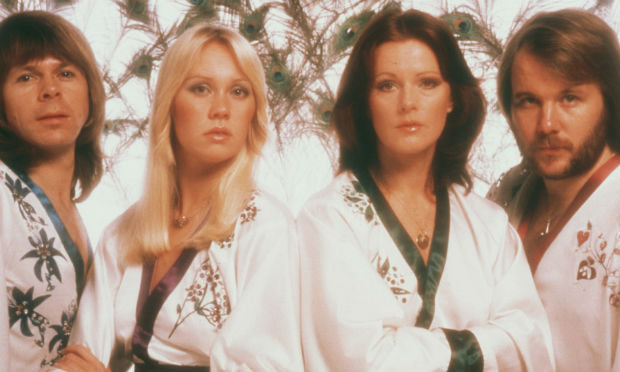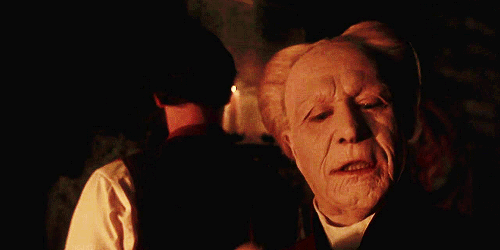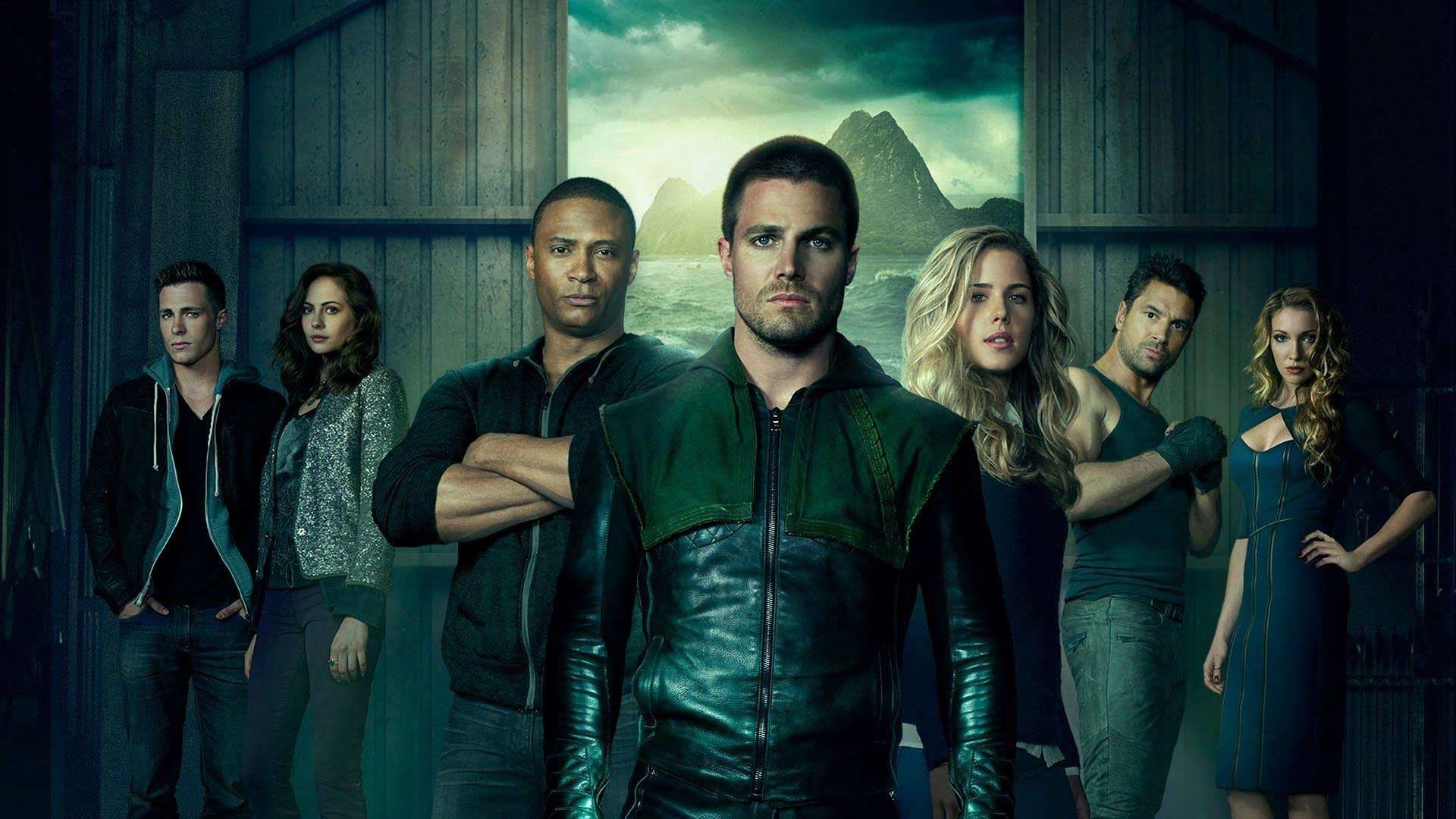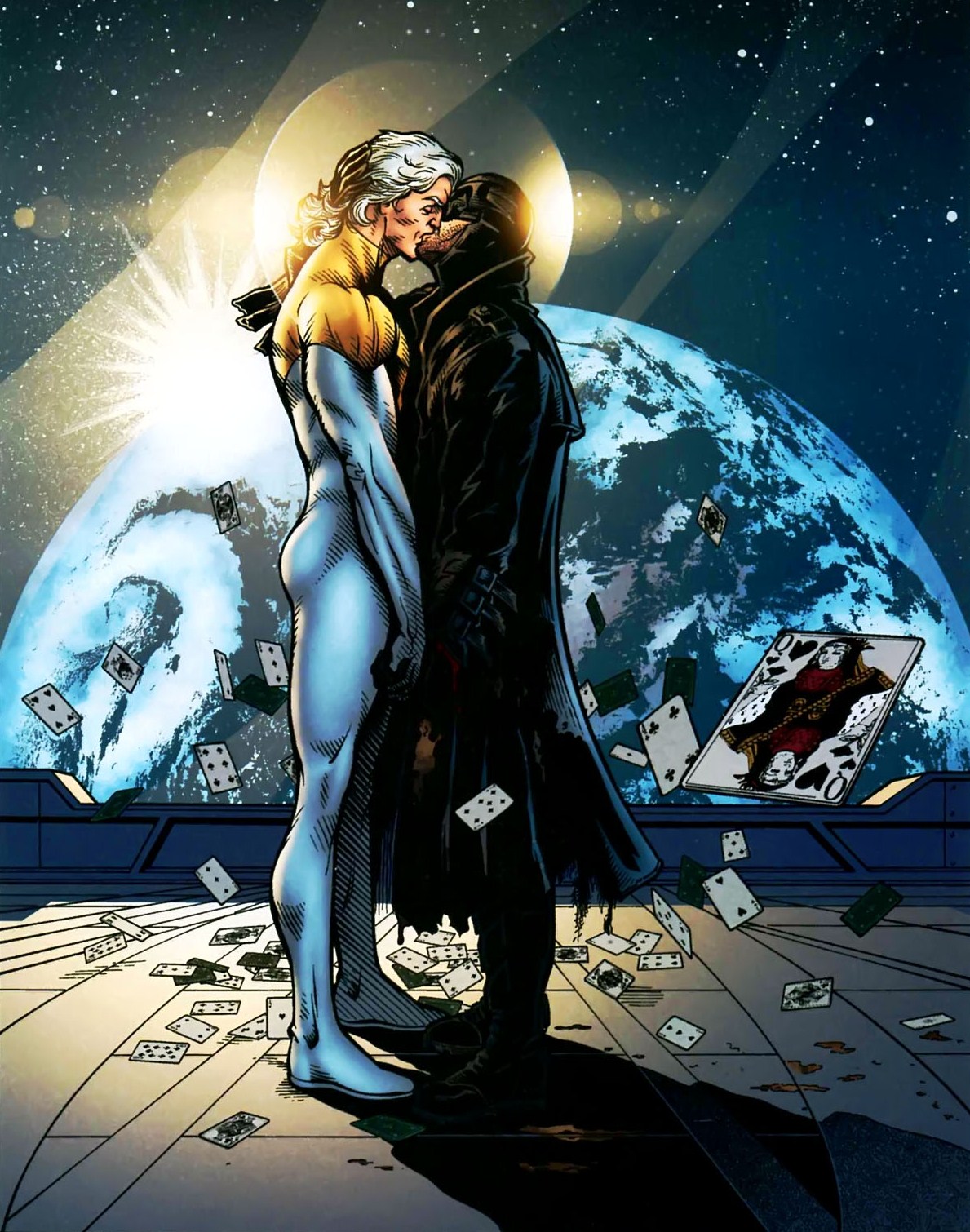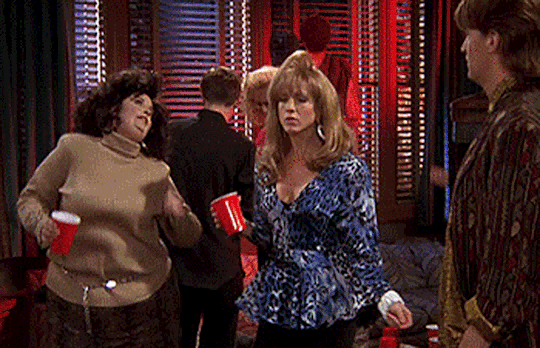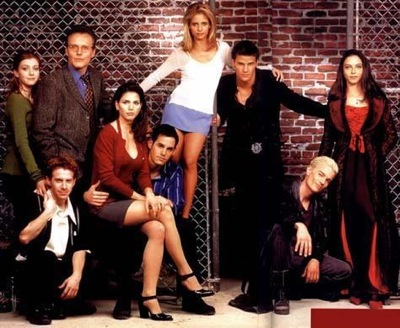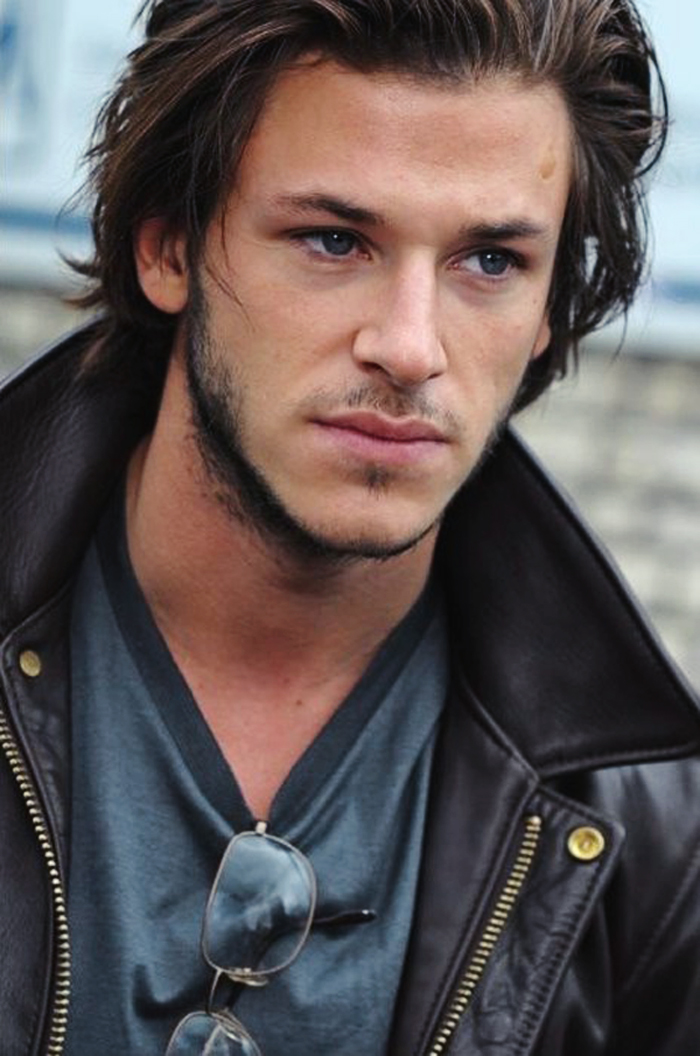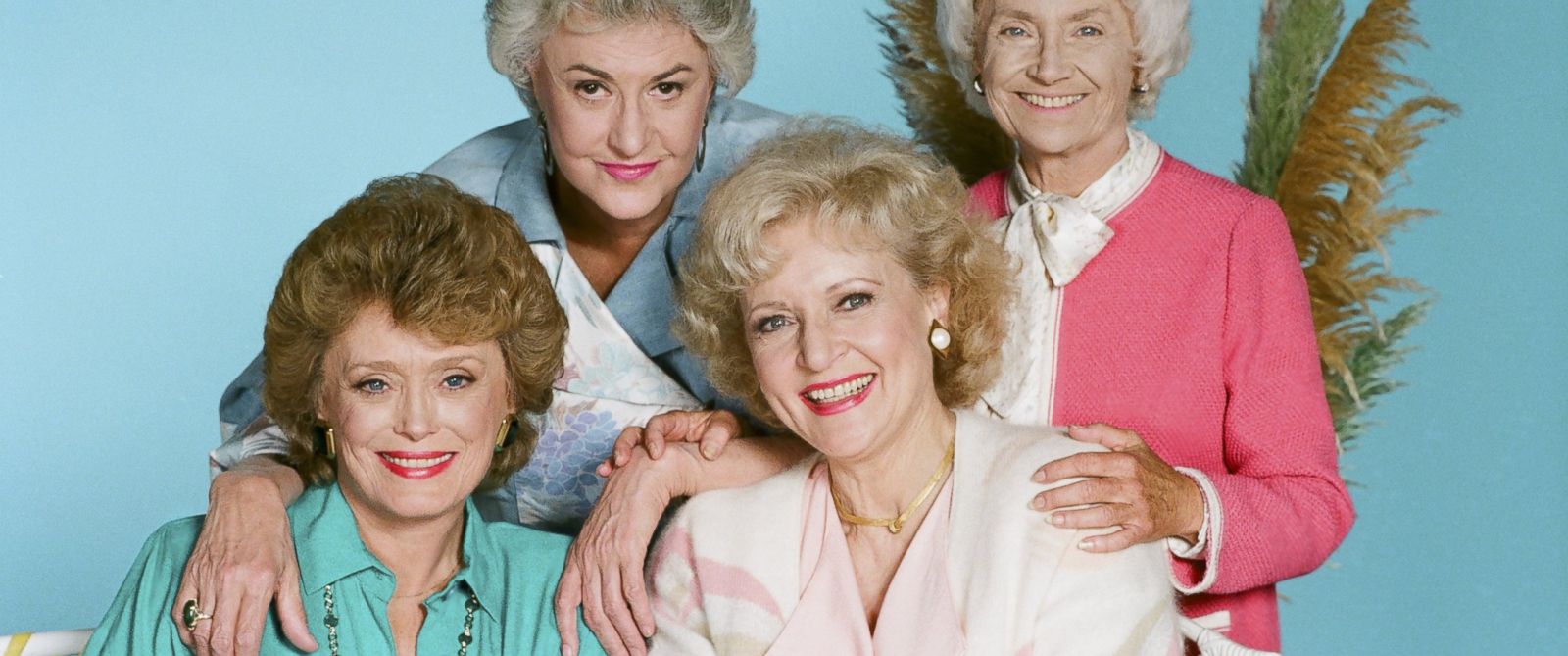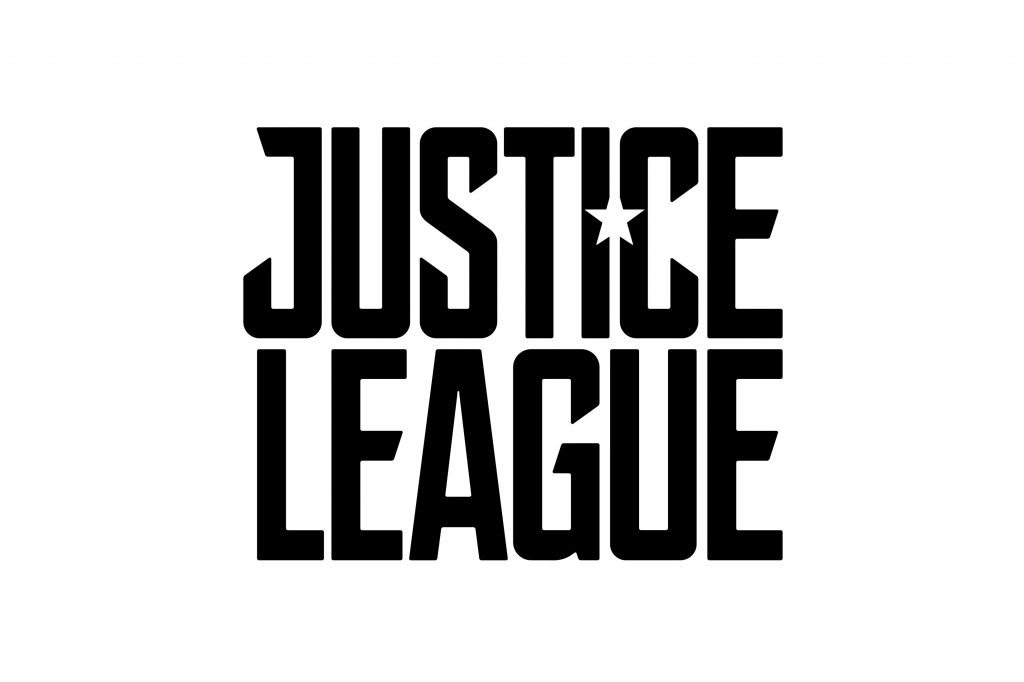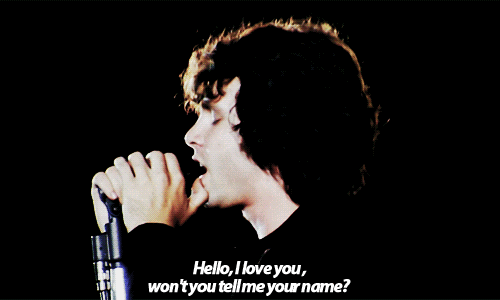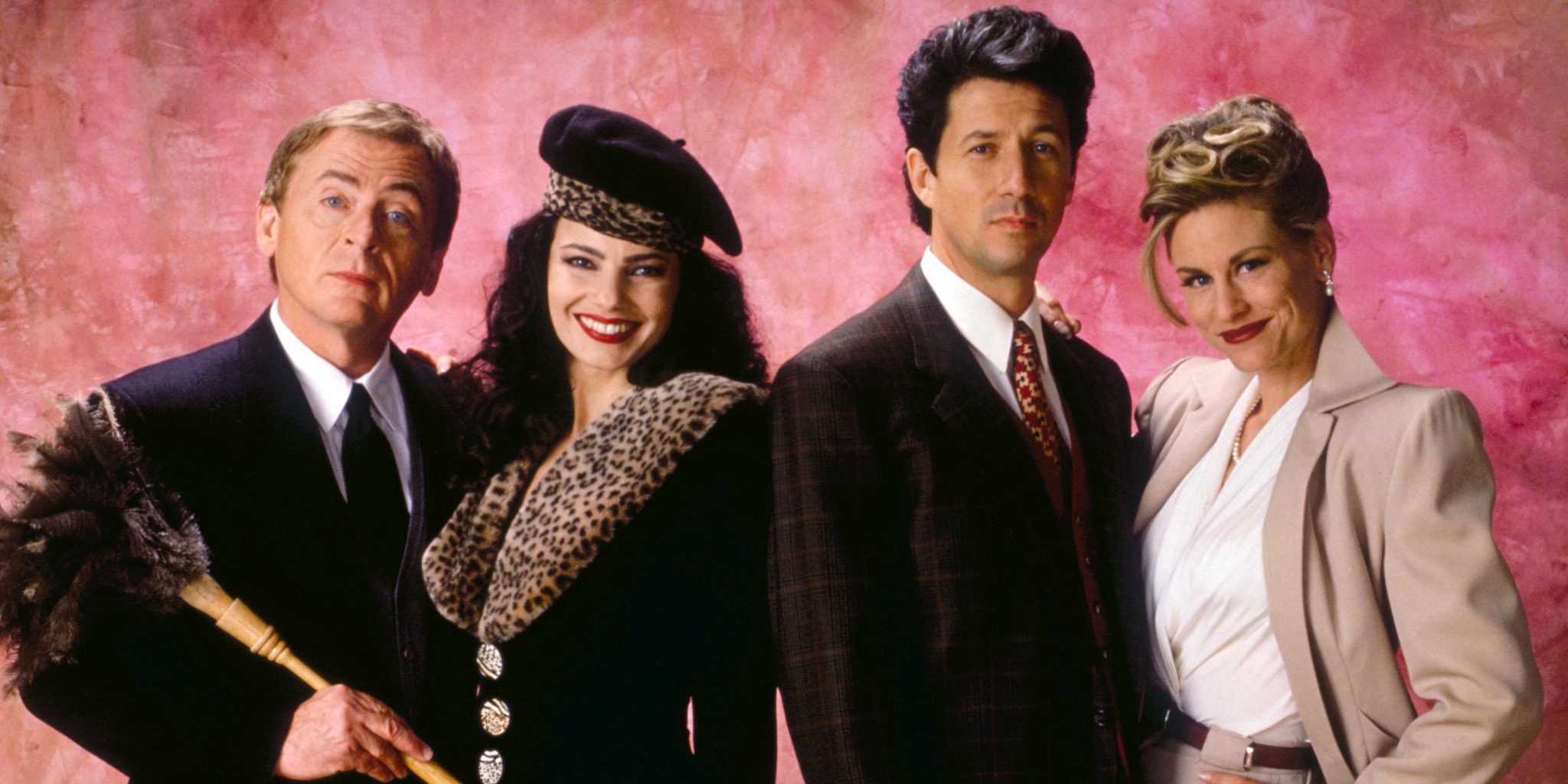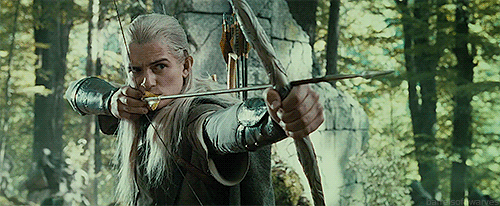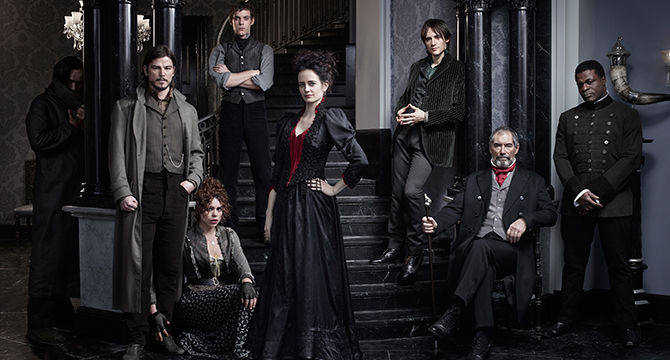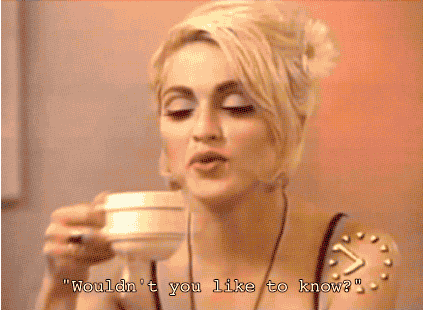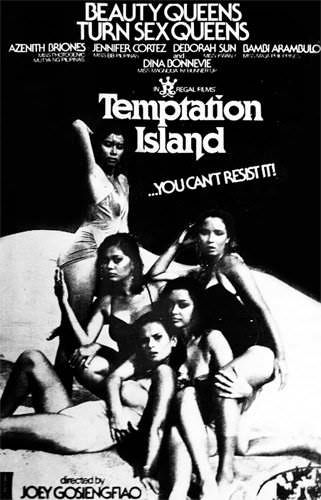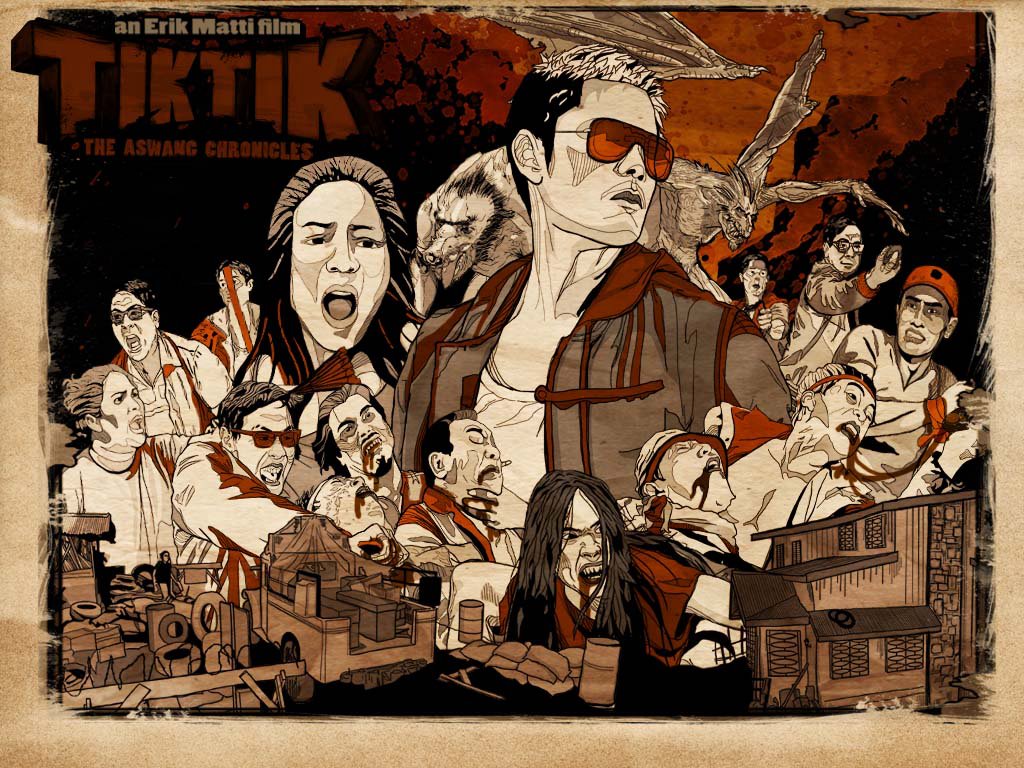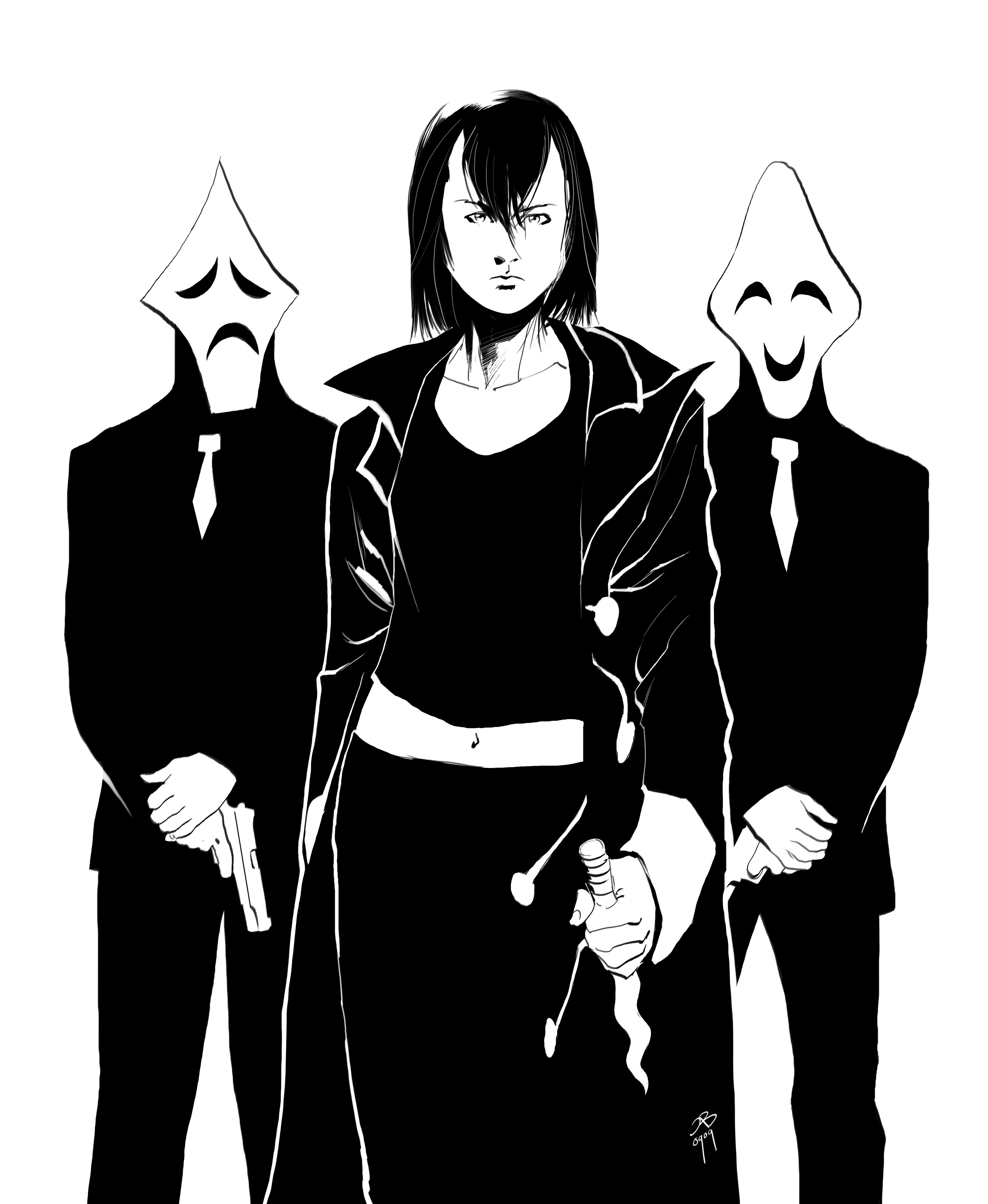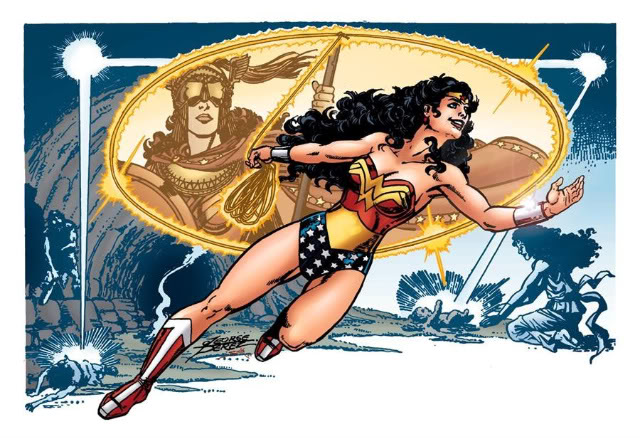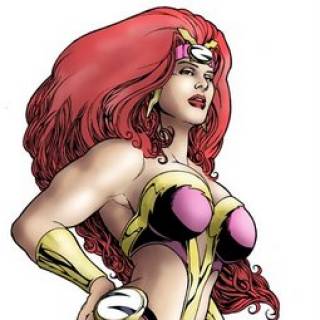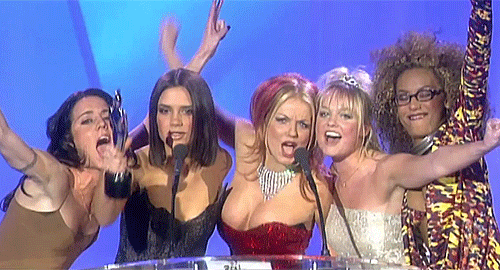Buffy Week, Day 5: So Evil And Skanky And Kinda Gay
by allancarreon on Mar.29, 2017, under Film & TV, Geeky, Queer
Season 5 Credits
Continued From:
Buffy Week, Day 4: This Isn’t Just Some Fanboy Thing.
As we now go into my Top 10 favorite Buffy episodes, we’ll switch gears. Whereas previously I listed the Top 11-30 by airdate (though, yeah, I did make it look like countdown mode) and not by preference, the Top 10 will be in order of personal preference.
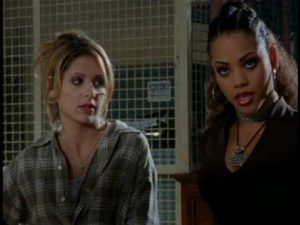 10. What’s My Line? Parts 1 and 2. Season 2, Episodes 9 and 10.
10. What’s My Line? Parts 1 and 2. Season 2, Episodes 9 and 10.
Kendra: They call me Kendra. I have no last name, sir.
Buffy: Can you say, “Stuck in the eighties?”
Here is another (wait, it’s that word again!) game-changing arc on Buffy. And while there have been a few other game-changing episodes that came afterwards (as I previously noted them in my Top 11-30), I think this may have been the first one of the series.
Two words: another slayer.
Right from the beginning of the show, it was always reiterated that there can only be one slayer at any given time. So the twist ending of the first part of this two-part arc had me (and I suspect hordes of other fans) going nuts.
The explanation that followed in the second part – that Kendra was activated when Buffy temporarily died at the end of Season 1 (but got resuscitated) – should really have been obvious in hindsight but something many did not see coming. It was also a twist I never truly would’ve thought of had I been writing this show.
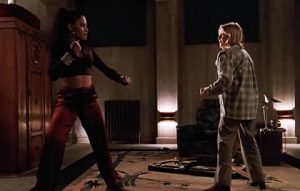 This new twist to the mythos thus paved the way for a lot of what was to come: A deeper look at the slayer concept. The apparent possibility that a potential slayer at a young age could be identified and trained by Watchers early on before the calling. Faith Lehane. The idea that Buffy potentially need not be alone. The series finale where all potential slayers were activated.
This new twist to the mythos thus paved the way for a lot of what was to come: A deeper look at the slayer concept. The apparent possibility that a potential slayer at a young age could be identified and trained by Watchers early on before the calling. Faith Lehane. The idea that Buffy potentially need not be alone. The series finale where all potential slayers were activated.
What makes story just great, with or without the Kendra twist, is that it’s just a good old classic Buffy tale that’s well-written and well-executed. We see characters move forward (Xander/Cordelia seeds planted; more Oz/Willow development; Angel/Buffy dating woes). We see a new slayer who acts so differently from Buffy – a disciplined, very serious slayer who teaches Buffy a lesson or two (and who learns from Buffy as well). And through it all – we have an exciting plot wherein three diverse assassins are out for Buffy on a bounty in order to distract her while Spike tries to (and succeeds in) bringing Drusilla back to full health, paving the way for the road that the rest of the season would be taking with Angelus.
Seriously: mealworm assassin. Come on. That’s gold.
 09. Earshot. Season 3, Episode 18.
09. Earshot. Season 3, Episode 18.
Jonathan: Stop saying my name like we’re friends. We’re not friends. You all think I’m an idiot. A short idiot.
Jonathan Levinson is an interesting recurring character, starting as nothing more than random background dork. He would be a familiar background face no one would’ve expected to be more visible later on. However, this “invisibility” of the bullied character would finally be used by the showrunners to drive home a very relevant story.
In an encounter with a demon, Buffy accidentally gains telepathy. Initially, she finds this power useful, but as it amplified, she was unable to control it and – just before it overwhelmed her in school as she was flooded with everyone’s thoughts and emotions – she overheard a random thought from an unidentified person that he/she plans to kill everyone in school. This leads to a Scooby “whogunnadoit” hunt for the possible coming perpetrator.
Towards the end, Buffy finds herself in the clocktower facing off with Jonathan – seemingly preparing to massacre the student body – and how she handles the conflict is different. Not with the usual punches and flying kicks, but with words and understanding.
It was a beautiful scene about understanding one’s pain and the pain of others – of how people, underneath their happy exterior, may be experiencing different kinds of pain and loneliness and frustration.
But what really clinches it is the revelation that…
… Jonathan wasn’t planning to kill others. He went up the clocktower to kill himself (how he planned to do this with a rifle, we’re not told, but I’ll let that pass). It gives the entire conversation new meaning, though still equally-important, and the very real tragedy of teen suicide comes to the forefront of the show.
The social relevance of this episode is what truly makes it a great one for me. We’ve seen the show portray out of this world villains, demons, vampires, and more. However, this time, the show portrays a darker reality of teenage life, something Buffy cannot face with a left hook.
And we see Jonathan become a better person because of it… before becoming worse as he turns to being a petty criminal as part of the Trio of Evil Nerds in Season 6). There was still hope for him, of course, being (comparatively) the most morally conscientious of the Trio, but his journey ends when 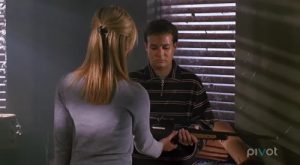 Andrew – influenced by The First – kills him as a blood sacrifice in Season 7.
Andrew – influenced by The First – kills him as a blood sacrifice in Season 7.
It must be noted that Earshot itself was not aired on its original schedule; coincidentally, the episode was to be aired just right after the Columbine massacre, where teenagers actually did massacre their schoolmates. While one assumes the episode was written and shot well before the real life tragedy, the showrunners decided to postpone the airing to just prior to Season 4 out of respect and sensitivity.
That said, its lessons are very much a powerful message – back then as it still is now.
Oh, and the lunch lady: she was the would-have-been culprit, rat poison and all.
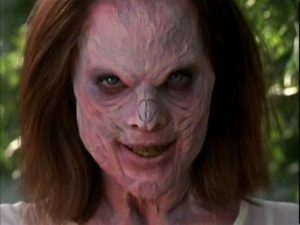 08. The Wish / Doppelgangland. Season 3, Episodes 9 and 16.
08. The Wish / Doppelgangland. Season 3, Episodes 9 and 16.
Willow: That’s me as a vampire? I’m so evil… and skanky… and I think I’m kinda gay.
So this may be seen as stretching my “2-parter as one episode” rule in this scenario. All other 2-parters I’ve noted and will note are consecutive episodes and can easily be seen as one long episode split in half. What we have here are two episodes that are more than half a dozen episodes apart, and yes, it probably is a little bit of cheating. However, I do stand by my view that these two episodes form one thematic whole coming from a single story arc’s trajectory. Doppelgangland is, in my opinion, pretty much a 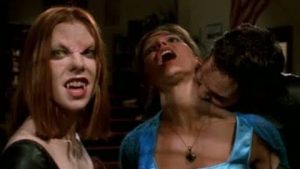 direct sequel of The Wish.
direct sequel of The Wish.
In The Wish, we see a spurned Cordelia wish out loud that Buffy – who she saw as the ultimate reason why things went south for her, including her failed relationship with Xander – had never come to Sunnydale. Unfortunately, this was in the presence of the vengeance demon Anyanka/Anya, her first appearance on the show; the result was an alternate reality where Sunnydale had been overrun by the Master’s hordes, Xander and Willow had turned into kinky, sadomasochistic vampires, and Angel was one of their, um, “ponies.” And Cordelia got killed.
And almost everyone in the main cast, TBH.
It was one of the darker episodes of the entire series, and here we got to see the kind of influence Buffy truly had in the lives of these people. Ultimately, the spell was reversed, of course, bringing everything back to the way  it had been and leaving Anya completely powerless… while stuck in the body of a teenaged high school student.
it had been and leaving Anya completely powerless… while stuck in the body of a teenaged high school student.
Fast forward to Doppelgangland, where a still-enrolled Anya struggled with high school life (and she’s fluncking math!). Desperate to regain her status, she tricked Willow into trying to help retrieve her power source; not only did they fail, but they unwittingly brought Willow’s The Wish alternate reality counterpart (‘VampWillow” as she’s fondly called) into the their world. VampWillow causes a lot of trouble, a combination of funny and horrifying, especially when she interacted with the real Willow. In the end, everything got fixed, and we still had Anya – thankfully, as she later became an important part of the gang.
It might not have been as dark as The Wish, but Doppelgangland was most definitely classic. It’s even on Joss Whedon’s Top 10 (along with The Wish). We get a bit of fun farce with the mistaken identity trope, and we get to see intriguing character developments. This was a foreshadowing of Willow’s dark side, of what she could be underneath her sweetness and light. It was also a foreshadowing of Willow’s sexuality.
All in all, this pair of episodes showcases some of the best that Buffy truly could offered.
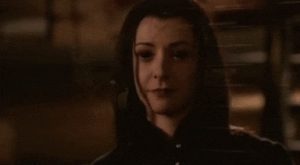 07. Grave. Season 6, Episode 22.
07. Grave. Season 6, Episode 22.
Xander: Ending the world – not a terrific notion. But the thing is, yeah, I love you. I love crayon-breaky Willow, and I love scary, veiny Willow. So if I’m going out, it’s here. If you wanna kill the world, well, then start with me. I’ve earned that.
Speaking of Willow’s dark side, we see that fully realized three seasons after her VampWillow double held a dark mirror to her face.
In what was perhaps an unexpected turn of events for Season 6, the Trio of Evil Nerds suddenly found themselves in huge trouble: not from Buffy, but from a Willow gone all Dark Phoenix. At some point, people were probably wondering how this useless and annoying Trio could really be the Big Bad of the season, and they wondered no more as the addictive path that Willow had been taking in the background came clashing with the Trio when Warren accidentally kills Tara.
Grave is actually the conclusion of what I would view as a 3-parter alongside Villains and Two To Go, 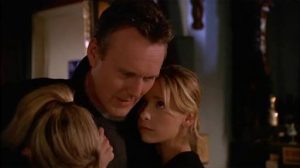 with a prologue at the end of Seeing Red when Warren shoots Tara. That said, while I did like the whole 3-part arc, I do not quite have the fondness for the first two episodes that I do for the actual finale.
with a prologue at the end of Seeing Red when Warren shoots Tara. That said, while I did like the whole 3-part arc, I do not quite have the fondness for the first two episodes that I do for the actual finale.
Grave is the only season-ender that has made me tear up among all the season-enders. No, not even Buffy killing Angel in Season 2 or Buffy’s sacrifice in Season 5 affected me like this one. Anya’s death in Season 7’s finale, coupled with Xander’s inability to say goodbye, came close – but still no.
The only season-ender resolution that got me crying was this:
This scene will always be one of the best things the Buffy show has ever done, highlighting the bond between friends and what a true hero the “powerless Zeppo” Xander is. We see just how much pain Willow truly was in, and we see that only Xander was able to reach through that pain and bring Willow back into the light.
This was the only Big Bad that Buffy could never defeat. It was a powerful testament to the journey of maturity that she, Willow, and Xander have gone through since they first met.
It was also an apt ending for a season that sought to answer the question: after defeating a hellgod in  Season 5, what else can Buffy face? In the end, setting aside the human evil of the Trio, Buffy faced the one enemy she never defeated.
Season 5, what else can Buffy face? In the end, setting aside the human evil of the Trio, Buffy faced the one enemy she never defeated.
As for Nicholas Brendon and especially Alyson Hannigan – they truly nailed that final scene, actingwise. Forget the rest of the episode; this was a shining moment in a very divisive Season 6.
And I loved it.
06. The Prom. Season 6, Episode 20.
Giles: And I shall be wearing pink taffeta as chenille will not go with my complexion. Can we please talk about the ascension?
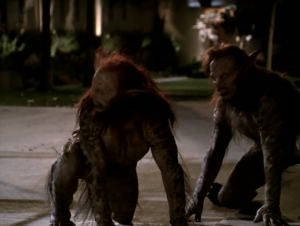 On the surface, the prom episode may just have been another monster-of-the-week episode. You know, crazy, rejected kid decides to release hellhounds to massacre kids at the prom. Typical Sunnydale stuff.
On the surface, the prom episode may just have been another monster-of-the-week episode. You know, crazy, rejected kid decides to release hellhounds to massacre kids at the prom. Typical Sunnydale stuff.
A closer reveals that it’s truly more than just a monster-of-the-week story. This episode was paving the way for upcoming changes to the status quo of the show after the succeeding graduation arc.
Here, we finally saw some closure on Xander/Cordelia’s relationship – which ended badly (enough for The Wish to have happened) but which was, to an extent, repaired herein with Xander’s gesture of the prom dress. We also got the beginnings of Xander and Anya’s relationship, albeit one that stemmed from desperation on both sides to get a prom date.
This was also where Cordelia’s future path on Angel was set, with her family’s loss of their money becoming the catalyst for her move to Los Angeles after high school. And of course, this also set up the 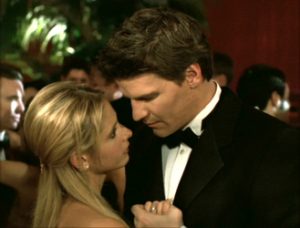 reasons why Angel decided to move away from Sunnydale into his own spin-off series (along with Cordelia and Wesley).
reasons why Angel decided to move away from Sunnydale into his own spin-off series (along with Cordelia and Wesley).
More down the line, this episode gave us a glimpse of Tucker Wells (Aladdin‘s very own singing voice, Brad Kane), a demon-summoner who was supposed to have been the third in Season 6’s Trio of Evil Nerds alongside Jonathan and Warren. Unfortunately, Brad Kane couldn’t return, and so they created the character of Andrew – Tucker’s brother – to fulfill that role (and I’m glad they did, because Andrew became a personal favorite who later on was a crucial part of the Scoobies).
All of these were great (especially the Xander/Cordelia resolution), but what truly made this a favorite of mine was the prom awarding scene, right after Buffy secretly saved everyone yet again from monsters that didn’t make it to the celebration.
Perhaps Buffy’s heroism wasn’t so secret, after all.
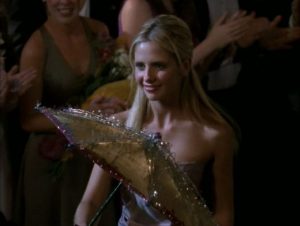 I mentioned that Grave was the only season-ender that made me tear up. That’s true, but it doesn’t mean no other episodes did. This prom scene was one of them. Call me cheesy, but it felt good that all this time people knew Buffy was their hero, and it felt good that they recognized her for it.
I mentioned that Grave was the only season-ender that made me tear up. That’s true, but it doesn’t mean no other episodes did. This prom scene was one of them. Call me cheesy, but it felt good that all this time people knew Buffy was their hero, and it felt good that they recognized her for it.
And this appreciation of Buffy would be crucial to their success at the end of the season when they would face the Mayor.
Continued In:
















